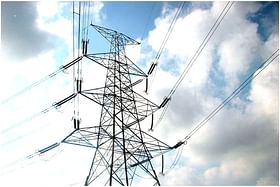India’s power transmission system is set to undergo a major modernisation and become smarter with the implementation of several technological solutions, according to a report from a task force established by the Power Ministry in September 2021.
The report of the task force, chaired by CMD of POWERGRID, recommended real-time monitoring, automated grid operation, and enhanced resilience against cyber-attacks and natural disasters, among other measures.
According to a Power Ministry statement on Tuesday (7 March), the report was accepted last week by the government after deliberations led by Union Power Minister R K Singh, who emphasised the need for a fully automated and digitally controlled grid to achieve the government’s vision of providing 24×7 reliable and affordable power to the people and meeting sustainability goals.
The minister said that a fully automated, digitally controlled, fast responsive grid which is resilient to cyber attacks and natural disasters is the need of the hour.
He said that such a system should ensure isolation of specific areas in case of any contingency, so as to protect the grid and prevent larger outages.
Singh also directed the Central Electricity Authority to formulate necessary standards and regulations for the adoption of the identified technological solutions and to set benchmark performance levels to build a robust and modern transmission network in the country.
The task force proposed several technological solutions to modernise and future-proof the transmission system, including centralised remote monitoring, predictive maintenance using AI/ML algorithms, energy storage systems, and the use of drones and robots for construction and inspection of transmission assets.
The use of robots and drones for construction and maintenance is also expected to minimise human intervention and reduce life risks and hazards while saving time and ensuring accuracy.
The short-term to medium-term recommendations are expected to be implemented over 1-3 years, while long-term interventions will be implemented over a period of 3-5 years.
“While the short-term to medium term recommendations will be implemented over 1-3 years, the long-term interventions are proposed to be implemented over a period of 3-5 years,” the Power Ministry said.
The implementation of these recommendations is expected to make the power transmission system more resilient and efficient, increase the share of renewable energy, and ensure the availability of reliable and affordable power to the people.


